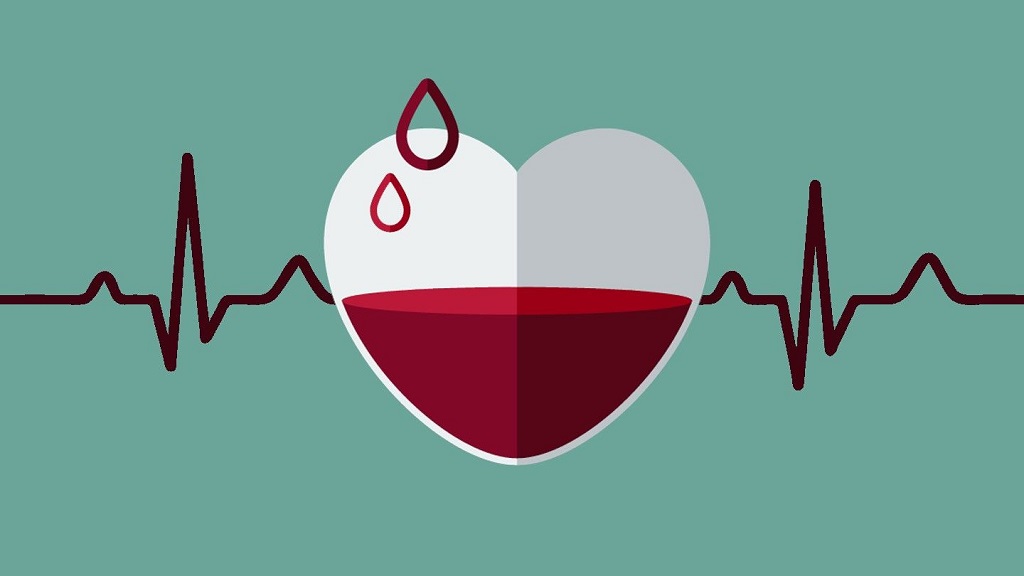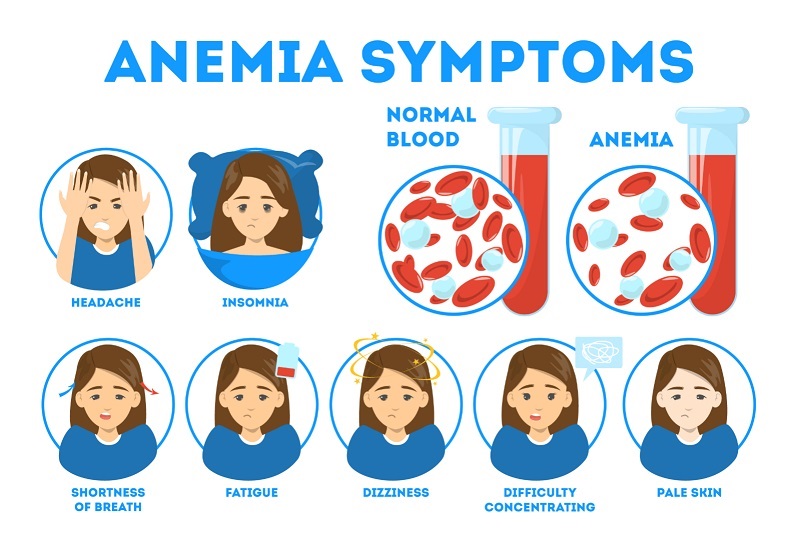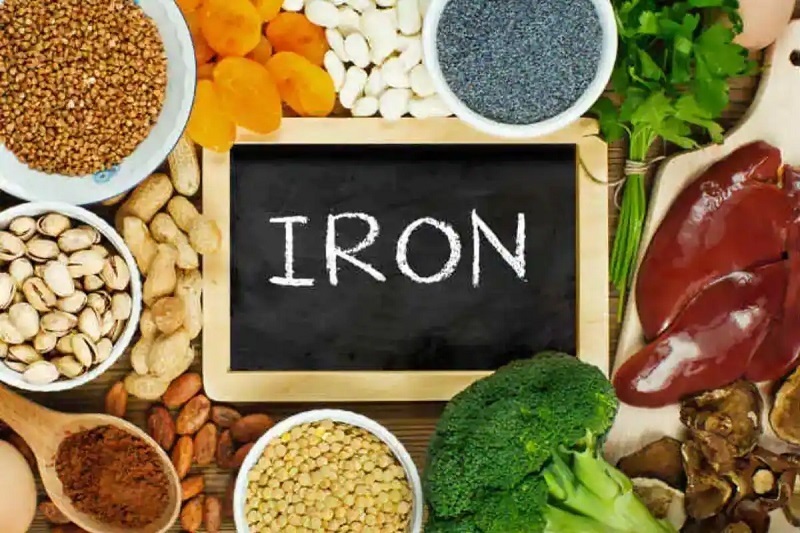
Anemia happens when the body needs sufficient healthy red platelets. Subsequently, the blood becomes unequipped for conveying an adequate measure of oxygen. Anemia can be temporary or long-term and can go from gentle to extreme.
Dizziness is one of the most characterizing symptoms of anemia. However, if Anemia is caused by chronic disease, it can mask the indications of frailty, making it challenging to detect.
Although a diet plan with iron-rich Foods can help control, if not cure, Anemia completely. Without enough iron, our body can't make sufficient haemoglobin. That turns into a significant issue since haemoglobin is the substance in red blood cells that conveys oxygen from the heart to the body tissues. Around half of the pregnant ladies, 20% of ladies, and 3% of men need an adequate number of irons in their bodies.
Reasons that Cause Anemia
Anemia can be because of a condition present at birth or a situation you develop. It happens when your blood needs more red platelets.
This can occur if:
- Your body doesn't make sufficient red platelets.
- Draining can cause you to lose your red platelets faster than they are replaced.
- Your body obliterates red platelets.
So, if you suspect you are pale and feeling Dizziness, it's wise to see your PCP, who can run a few tests to diagnose you properly. Iron supplements are just crucial if you are determined to have a lack of iron or paleness. They shouldn't be taken otherwise, and you should continuously request your doctor before taking any supplement.
Although your body can store iron, it can't make it, and that implies you want to get it from food or supplements. The following are five iron-rich food sources that you can add to your diet to have excellent Health.

Lean Chicken Breasts
The College of Nutrition and Dietetics says that the body retains more iron from animal sources than plants.
As per celebrity nutritionist Isabel Smith, lean-cut white meat like chicken is a top food for iron deficiency if you're ready to consume heme protein from animals.
Lean Red Meats
To get 22% of your recommended daily iron intake, add lean red meat to your diet. Specialists say to boost the iron retention, eat red meat with food sources that are plentiful in L-ascorbic acids, such as strawberries, oranges, tomatoes, red peppers, Brussels sprouts and broccoli.
Dark Leafy Greens
“There are two kinds of iron: heme iron from animal sources and non-heme iron from plant sources. Hence, If you depend on non-heme iron, you should expand your serving sizes to ensure you are getting enough.
Great sources of iron are raw and cooked spinach. Nonetheless, cooking spinach will assist your body with better ingesting the supplements it offers. A cup of cooked spinach has around 6mg of iron, as well as fibre, calcium, protein, and vitamins A and E.
Nuts and Seeds
They are perfect to snack on as Nuts and seeds contain solid fats and protein. Specialists say that pumpkin seeds and pistachios are rich in iron and extraordinary to snack on. Around 28g of pistachios will give you 6.1% of your everyday prerequisite.
Legumes
Soybeans, red kidney beans and chickpeas are plentiful in iron, folate and L-ascorbic acid. Lentils are a versatile vegetable – they are scrumptious as a side-dish ingredient or part of a meat-free main meal. One cup of cooked lentil plant is loaded with 7mg of iron, 16g of fibre and 18g of protein.

Other Ways of Getting More Iron in the Diet
Although adding food rich in iron to your eating routine can assist with raising blood levels of iron, the vast majority with lack iron need to take supplemental iron to achieve good anemic-free Health.
Specific individuals don't retain iron well and may have to have IV iron medicines. An individual's PCP will exhort the best treatment for their particular requirements. Notwithstanding, the concurrent systems can augment an individual's iron admission:
- Refrain from drinking tea or espresso with suppers.
- Try not to eat food sources rich in calcium with those rich in iron.
- Eat iron-rich food sources close to those plentiful in L-ascorbic acid.
- Cook with a cast-iron skillet.
- Cook food sources for more limited periods.
If an individual has taken a look at changing their eating regimen and their iron levels stay low, they should talk with a specialist or dietitian, who might suggest a supplement.
Medical care experts frequently suggest picking a supplement containing ferrous salts, for example, ferrous fumarate, ferrous gluconate, or ferrous sulfate. Iron dosage recommendations fluctuate. An individual's PCP will decide the best structure and portion of iron-based on their Health needs.
